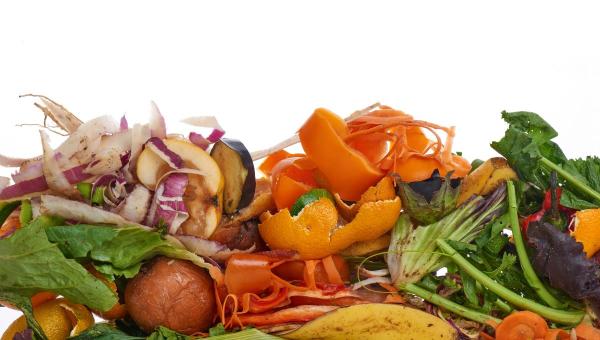The Environmental Impact of Food Waste
- August 14 2022
- 3 min read
The Environmental Impact of Food Waste

Many of us don’t consider the environmental impact of the food that we waste. This issue is damaging the environment, from wasting valuable water and energy resources in the growth of a bad crop, to the greenhouse gasses released by food in landfill. Read on to find out how food waste harms the environment and 3 top tips on how you can help.
How does food waste harm the environment?
Growth
Food waste begins at the farming level. Bad weather, pests, or uneven ripening patterns might ruin a crop. Insufficient labor can mean a harvest isn’t finished before the food turns bad. In addition to this, supermarkets often cancel orders for food at the last minute, leaving farmers unable to shift their goods. All of these factors contribute to food waste, and experts predict that 15% of the world’s food is wasted before it ever leaves the farm. This equals around 1.2 billion tonnes of food waste polluting the planet each year at the farming level. As well as this, all of the energy and water used to grow the crop is also wasted.
What’s more, unsustainable farming practices around the world are also damaging to the environment. Chemicals such as pesticides and insecticides pollute waterways, whilst intensive agriculture often leads to irreversible soil erosion. Clearing the land to grow monocrops often involves deforestation, contributing to climate change and a loss of biodiversity.
Transport
The environmental costs of transporting food are high enough without adding the effects of food waste. Transporting food in planes, boats and trucks around the world comes with a high carbon footprint. The trucks used to drive food around the US alone use a significant amount of fuel, which is a non-renewable resource.
Issues often happen along lines of transportation, such as boats or planes being delayed or trucks breaking down. These delays mean that food turns bad before it reaches its destination, leading to even more food waste.
Landfill
It’s estimated that 40% of all food produced on the earth is never eaten. Food waste is usually taken to landfill, whether it’s the tonnes of food lost in farming and transportation or the scraps from our tables. When this happens, the decomposition of food releases methane, which is a greenhouse gas. Even the most sustainable diet can be harmful to the environment when this happens. Data shows that 8% of all greenhouse gasses on the planet come from food waste.
How can we reduce food waste?
Each of us has a part to play when it comes to reducing food waste. Here are 3 top tips for how you can help:
- Plan your meals in advance
Planning your meals for the week in advance will help you to only buy what you need at the grocery store. Take a list so you won’t end up buying extras that later turn into food waste.
Meal planning also helps you with portion control, which will reduce the amount of leftovers ending up in landfill.
Purchase some eco-friendly reusable food containers to store any extra food, and use these for lunch the next day!
- Prevent food from turning bad unnecessarily
Reduce your food waste by making sure you don’t let food turn bad unnecessarily. Especially when the weather is warm, many people find the food they’ve recently bought spoils before its expiry date.
Reusable insulated bags can help keep chilled food fresh whilst you take them home from the supermarket. Cooler bags also allow you extra time to run errands or make unexpected detours, stopping food going to waste before it reaches the fridge.
If you like to buy in bulk to save money, freeze fresh meat and produce and defrost it as needed.
- Give to food banks where possible
Many of us like to regularly clear out our pantries, and throw out food that has been sat on the shelves for too long. If these items are still within their expiry date (many cans and dried foods last a long time), fill up a reusable bag and give them to your local food bank. Donating reduces food waste and helps your community.
Gain access to Orders, Tracking, Custom Options and Much More!